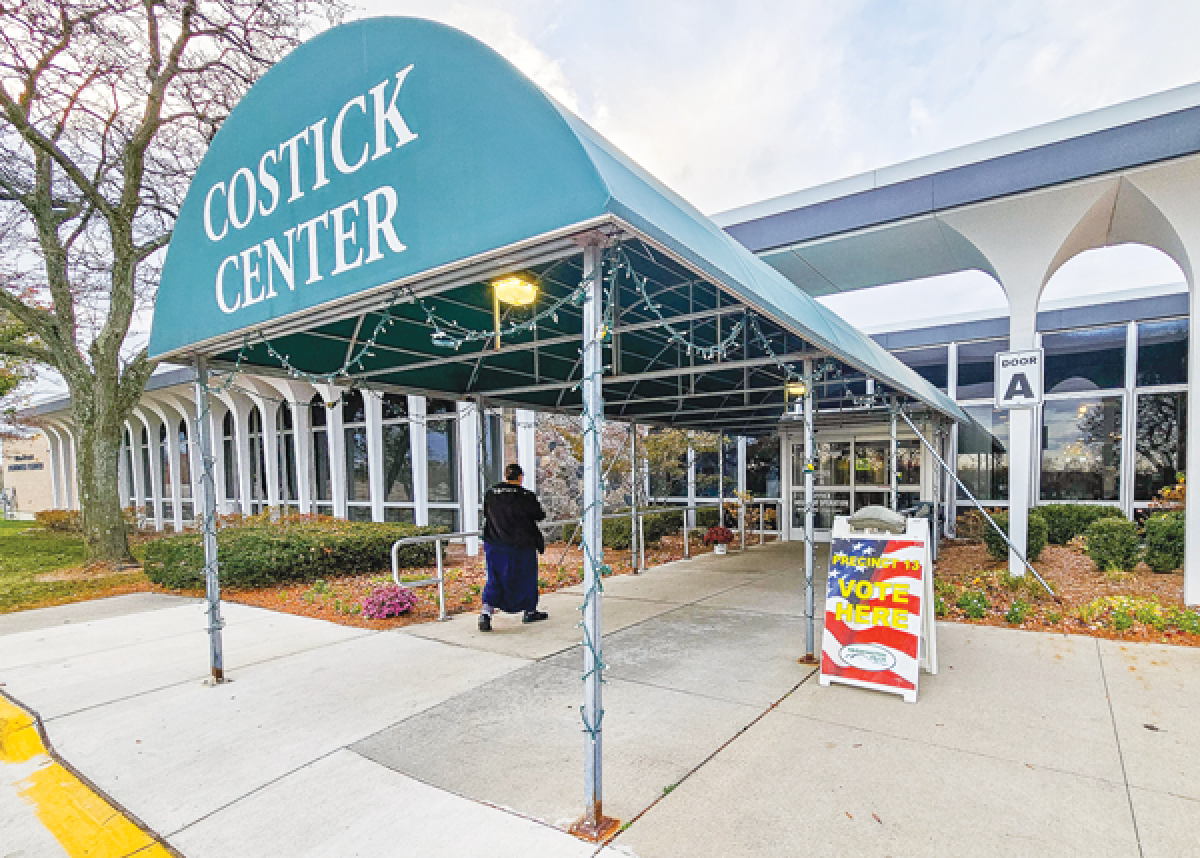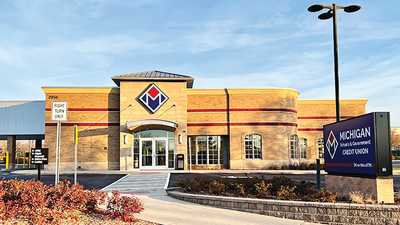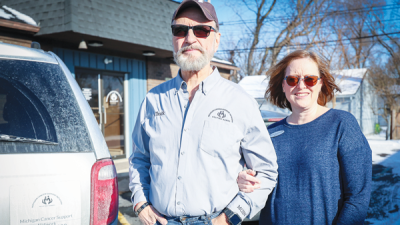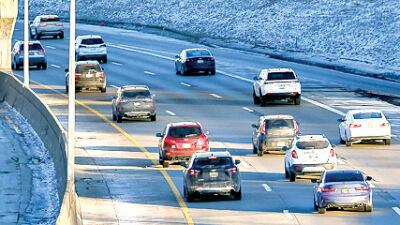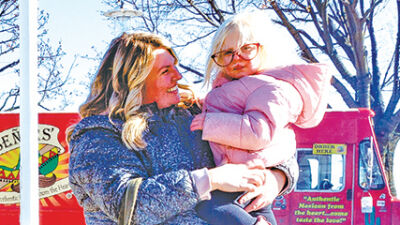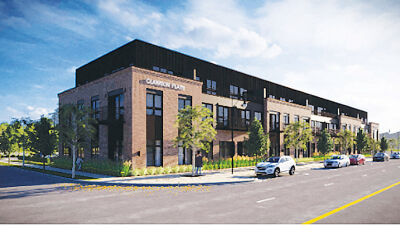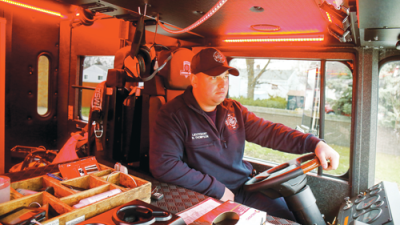FARMINGTON HILLS — Aside from casting votes for candidates running for elected offices, voters in Farmington Hills also had four proposals to consider during the general election Nov. 5.
Public roads and streets millage
In 2014, voters approved 2 mills for roads, and with that millage slated to expire this year, a proposal that was part of the general election ballot Nov. 5 gave them an opportunity to decide whether or not they wanted to renew it.
Residents opted to keep things status quo, with 27,857 voting in favor of it, compared to 14,253 who cast votes against it.
The public roads and streets millage is set to begin with the July 2025 tax levy and last for a period of 10 years.
Two mills equals $2 per $1,000 of a home’s taxable value.
According to Jacob Rushlow, the director of public services in Farmington Hills, the average taxable value of homes in the city is about $120,000, which means that at a rate of 2 mills, the average homeowner is paying $240 annually for the millage.
In Farmington Hills, according to Rushlow, the average market value of a home is $360,000.
“That’s great to see that we had such great community support,” Rushlow said of the millage renewal being approved. “It’s great for our goal of continuing our progress on improving the road conditions on all of our city-owned roads. Allows us to continue that program and (put) that money back into a system to get all of our roads into good condition.”
According to Farmington Hills City Councilman Randy Bruce, the city has come a long way since the previous millage was passed, and he was pleased that voters approved a renewal.
“We need that money to keep up on our roads, because without good neighborhood roads … the value of the homes go down. The image of the city goes down. Our city looks better overall,” Bruce said. “I think it has a tremendous benefit, and it was something that we really needed to pass.”
During his tenure as a Farmington Hills councilman, Michael Bridges, who is the city’s current mayor pro tem, has gotten used to residents supporting proposals put forth by the city.
“City of Farmington Hills voters, historically, have been very supportive of millages in Farmington Hills, as evidenced by the 2024 vote,” Bridges said. “So, we’re very appreciative, and we look forward to spending those funds in those dedicated areas for roads and make sure roads continue to improve across local as well as major roads.”
Farmington Hills City Councilman Jon Aldred said that residents will see the benefit of continued improvement in the condition of the roads.
“The road millage is, obviously, a very important part of us maintaining our public roads in the city, and I’m glad the residents feel the same way about continuing to improve the condition of our roads,” Aldred said. “We’ve made good improvement over the last 10 years, from 2014, when it was first passed. I’m hopeful that means the residents appreciate the improvements we have made and hopeful that will be continued in the next 10 years, seeing increased quality with the condition (of) the roads we have in the city.”
Farmington Public Schools operating millage renewal proposal
Voters in the Farmington Public Schools District approved an operating millage proposal, with 29,588 voting in favor of it and 16,199 voting against it.
The proposal’s ballot language asked voters for an increase to 21 mills, with 18 mills being the maximum allowable levy for non-homstead property, and no more than 12.5955 mills on principal residences for 10 years for operating expenses, providing an estimated $49,196,277 to the district during the 2026 calendar year for general operating purposes.
A statement from the district was issued following the passage of the proposal.
“We are extremely grateful to our community for supporting our millage renewal,” Kelly Coffin, the district’s interim superintendent, stated via email. “This renewal will provide funding stability for the District for the next 10 years.”
For more on the proposal, visit www.candgnews.com/news and search “Millage on ballot for Farmington Public Schools voters.”
Farmington Community Library
millage renewal
Residents of Farmington and Farmington Hills approved a Farmington Community Library 20-year tax renewal of just under 1 mill in the general election.
According to ballot language, the estimate of the revenue to be collected in 2025 as a result of the proposal passing is approximately $4.75 million.
In regard to the approved 0.9264-mill renewal, the cost for each property owner can be calculated by multiplying the taxable value of their property by the millage rate and dividing it by 1,000.
Property tax values can be found on property tax statements and by checking with the local assessor’s office.
According to Sarah Zitter Masindi, the library’s marketing and community relations director, for a homeowner with a taxable value of $250,000, at the current rate, it comes out to $231.35 per year for 20 years.
Zitter Masindi shared her thoughts about community members supporting the proposal.
“We’re thankful that the outcome shows that we’re supported, and so we’ll just continue to offer the services that we have,” she said. “The millage wasn’t for anything special. It’s just to continue our operating budget, so we’ll just keep doing the services that we have been doing and continuing to accept feedback from the community on what we can add to that and what they enjoy.”
City charter amendment
When Proposal 2 passed in 2022, it made it a requirement to count military or overseas ballots if they are postmarked by the scheduled day of an election.
That change to Michigan’s election law now means that if an overseas or military vote is postmarked on or before the day of an election and received by a clerk within six days of the election, it is counted.
The passage of the proposal also means that there is a delay in officially certifying the results of an election. Given that the previous charter for Farmington Hills called for newly elected members to the City Council to be sworn in at the meeting following an election, Aldred explained a potential conflict.
“The problem is that next regular City Council meeting may occur prior to formal certification, so that would then leave you in a situation whereby you can’t formally swear someone in (because) the results haven’t been certified, so that meant an uncertainty of, ‘OK, who’s on council? Is this person on council or not, because results are not certified?’”
From the city’s perspective, the remedy for the conflict was to amend the charter to allow City Council members and the mayor to serve until their successor is duly sworn in following an election or resworn in after being reelected.
Voters approved the amendment to the charter, with 33,813 voting in favor of it, compared to 6,809 who voted in opposition.
From Aldred’s perspective, it is a sensible change.
“It brings the point at which a city council or mayor can be sworn in – it brings it into line with recent election law changes in the state,” he said. “Otherwise, we were in this kind of strange situation where we cannot seat Council members because the votes hadn’t been certified. So really it’s kind of bringing our city charter in line with state law, so that was important.”
Bridges also supports the amendment to the city’s charter.
“The decision regarding making sure we have continuity on City Council’s very important, and city voters approved that,” he said. “I’m very appreciative and thankful for the voters of Farmington Hills for continuing to support the city.”
Farmington Hills City Manager Gary Mekjian said that the change is a “big deal.”
“The biggest benefit for our residents is a smooth transition of power at the local election level,” Mekjian said. “If something happened in this interim period under the old charter, there was a bit of a question as to who’s got their fingers on the levers of power here in the city of Farmington Hills, from an elected perspective. So, this clears up that whole situation.”
Aside from voters, Mekjian thanked the city of Farmington Hills “team” for helping to provide residents with information about the proposed amendment.
Bruce is a proponent of the change.
“We needed that because, typically, what would happen under the old charter language, the council members and mayor would be seated at the very next council meeting after the election, but with changes in state law you had to wait (until) overseas ballots came in and other things,” Bruce said. “Sometimes that certification of the election wouldn’t take place before the next council meeting.”
 Publication select ▼
Publication select ▼